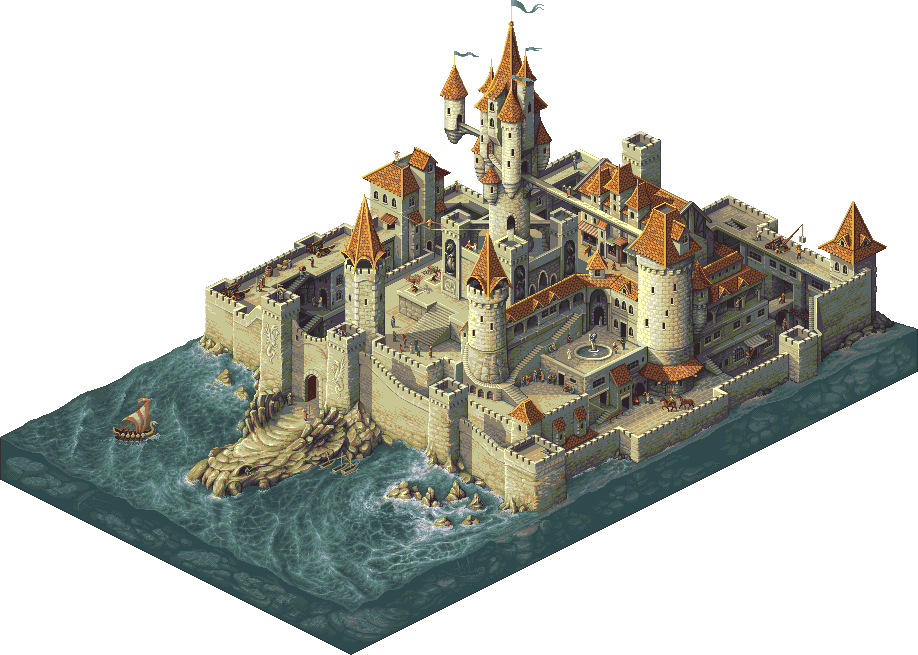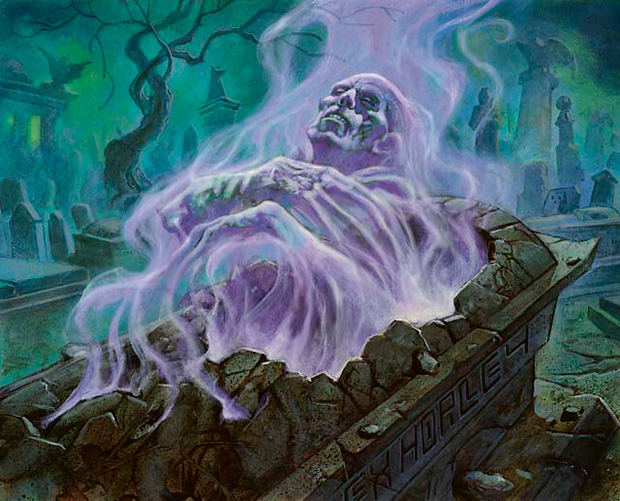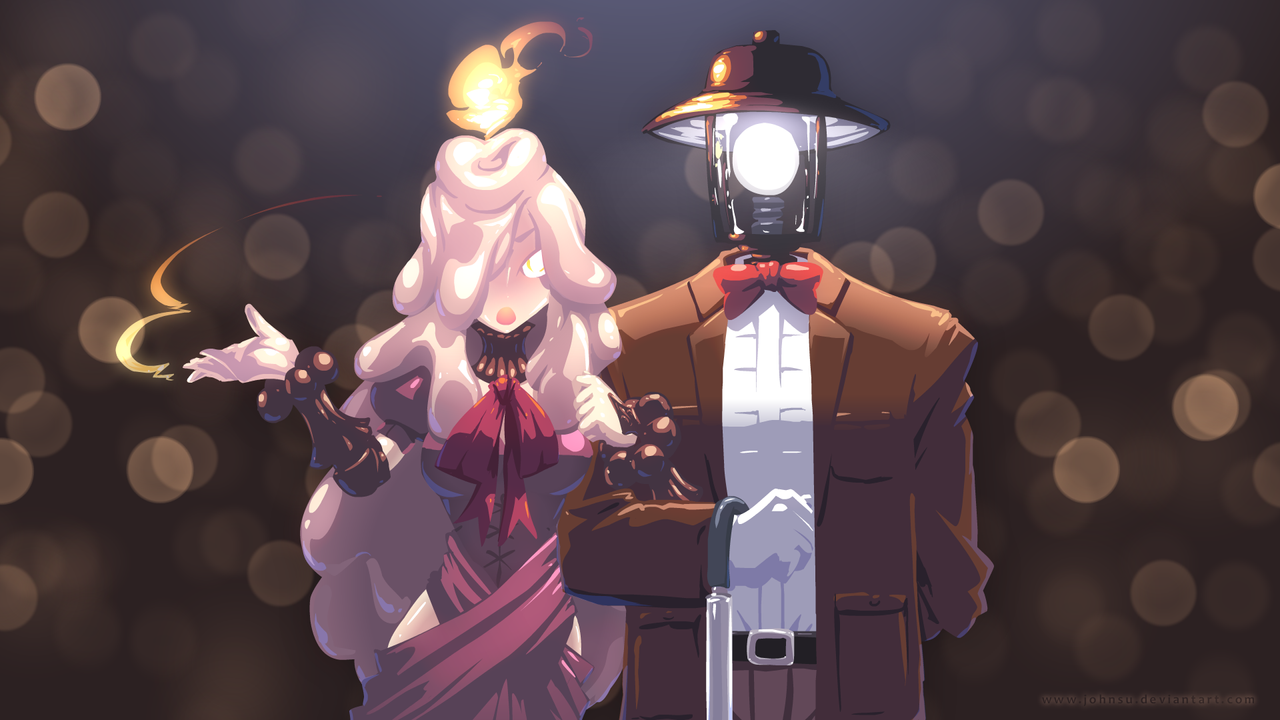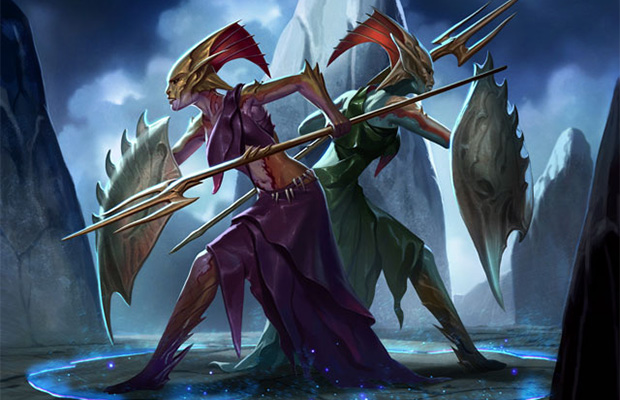"Bower Passage" image by Cliff Childs, who is here on Blogspot!
© Wizards of the Coast 2012
Two brothers rode into a wood. Think about that. What're you expecting me to say next? What're you expecting me to say now that I've asked? Contradict what you're thinking, that one will turn on another, Cain and Able in such a dark wood? Are the brothers friendly with one another? Have they been having a fight? Over one's relationship with the other's wife? Why are they riding into the wood?
It may or may not help you to enjoy the story to have all those preconceived notions, since I'm likely to just wipe them away, we'll just have to see. As it happens, the brothers were simply transporting some goods. Important goods, but the brothers didn't know that, and the idea was, neither would anyone else. I'm not sure what they were carrying, just that it was important, and didn't look important. Maybe a small rock, or some worn out jewelry or a bit of paper that looked like a shopping list. Things like that often have power.
The men had been fighting, but it was alright now. It was not about the faithfulness of anyone's wife. One of them, Rongitan had wanted to help a little girl they'd found, while the other, Phranton, had been wary. He thought her story sounded wrong, and was only willing to point her along the road. He used the job as an excuse, but in all honesty, the girl had made him nervous, and rightly so. Illusionists love forests, and this wood was perfect for crafting the light and bending the shadows. Phranton hadn't know about that, but the fact of the matter is, he was right to have his doubts and right to send the girl away. He didn't know it, but he was in the right. Rongitan, of course, had not sensed or noticed anything strange about the girl, so he was quite angry about their refusal to help a little girl. Most definitely an understandable disagreement.
I'm not really quite sure where this is going, are you? You expect something to happen here. This is either a place for me to introduce new slow material or the place to have a jumpscare. Or really just a jump, there can't be jumpscares in writing very well. If it's slow new material, you'll be waiting for the jumpscare, but if it isn't, you'll expect some resolution. So much weight to put on my shoulders, to deliver your story to you. Such expectations.
The brothers rode on, coming to a bend in the road, turning, trotting on, coming to a sign and pulling their horses back slow so they could read it. Rongitan was the reader, but he read aloud to Phranton because Phranton was the stronger man and had always been the leader, even if Rongitan was the smarter brother. One of the signs had the name of a bog on it, the other the name of a city. They traveled on towards the city, talking loudly about the mayor of their hometown and what he would do in situations, with no particular reverence for the man. He'd been at best an average mayor and at worst the drunken father of a girl Phranton had cared about a long time ago, who had left the town at sixteen.
They heard something, and Rongitan made a motion to slow to a halt and be quiet. Phranton, though the leader, was used to following his brother's advice without much question, and did so, though he had been entertaining quite a funny hypothetical about the mayor aloud, with Rongitan listening, and though Rongitan would have laughed loudly. Phranton raised his eyebrows at Rongitan, who made the sign for boar, a pointer-ring-out fist, with his hand, then pointed to where the thing must have been. Phranton couldn't make anything out, but he unhitched and uncovered the spear hanging at his horse's side, while Rongitan pulled his bow. Now usually you'd need a damn good dog to flush the boar out, but Rongitan was pretty good at this, and could loose arrows in such a way that the boars always ran out. Sometimes he could get them to run towards the spear, but even if he didn't, he'd hit them in the back or the side after they began to flee, and they'd slow down sure enough.
When the boar ran, it ran the other way, not towards Phranton. Rongitan pushed three arrows at it, and both men gave chase to the boar, turning several times and riding quick as they could, focusing on the boar and trusting their horses to be surefooted before the boar disappeared into some brush that they wouldn't be able to flush it out of.
"Damn!" Phranton yelled. "Why didn't you hit him?"
Rongitan shrugged, and began following his own tracks. He had no idea which way the road was, and he didn't care to guess. You couldn't see well through the trees. There was light enough during the day, but they hid the sun's true direction.
How do you figure it will end? You know they're not usually much longer than this, though sometimes you're only 2/3 of the way done by this point. But that still means it's got to be wrapping up. Does it matter how it ends up? Phranton seems pretty annoyed, and there's this issue with the delivery.
Phranton spoke. "Let's go this way. I'm sure this was the road." He didn't fancy retracing their steps. Rongitan looked at him, but this brother's eyebrows meant something different, so Phranton followed his brother back over their tracks, and they returned to the road shortly, boarless. They continued through the forest to the city their delivery was in, gave the man the package, took their pay, and rode through the forest back home. Now and again they came through the forest, and sometimes they told stories about the boar that got away. People will tell you that's fishermen, but really it's just anyone who's competitive about anything. Fishermen are just especially competitive, and often, especially drunk, so exaggeration happens a bit. But that's a story for another day. The brothers tended their farms until the end of their days, leaving occasionally but coming back, and when their sons grew up, they continued to till that same land, though one or two went away, for apprenticeships, or married into better farms.
Just because a story doesn't have a big fancy twist ending, or an enormous ending, or you don't know what was in the bag, doesn't mean it's not worth telling. Sometimes you don't care what's in the bag. It's just a bag, and being happy with life isn't about knowing what's in the bag, or the brothers coming to terms with something important, or learning something or being manipulated into thinking something. Sometimes you just need to hear about the boar that got away.
"The One That Got Away" Flash Fiction © Ben Clardy V
This work is licensed under a Creative Commons Attribution-NonCommercial 4.0 International License.












